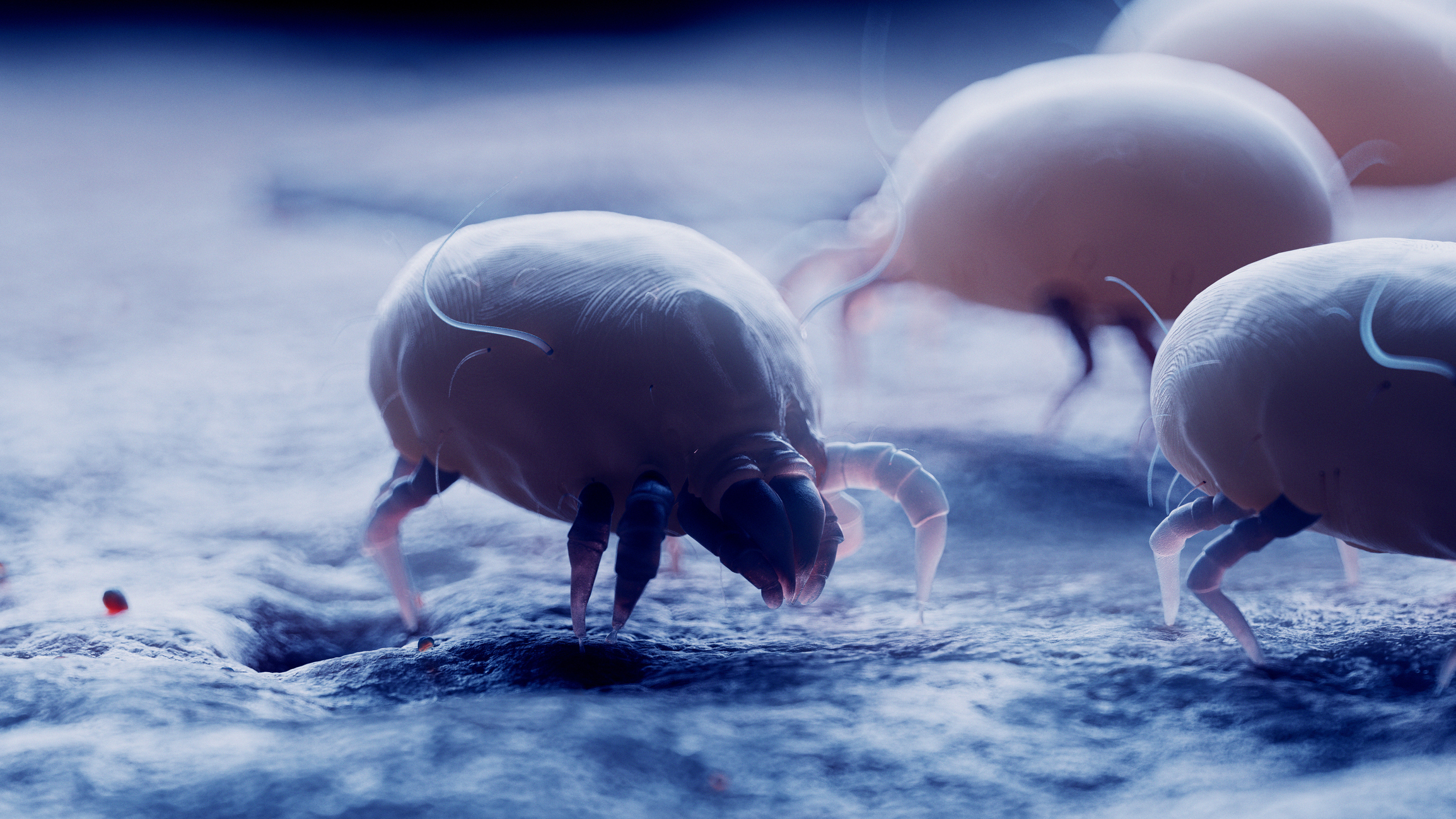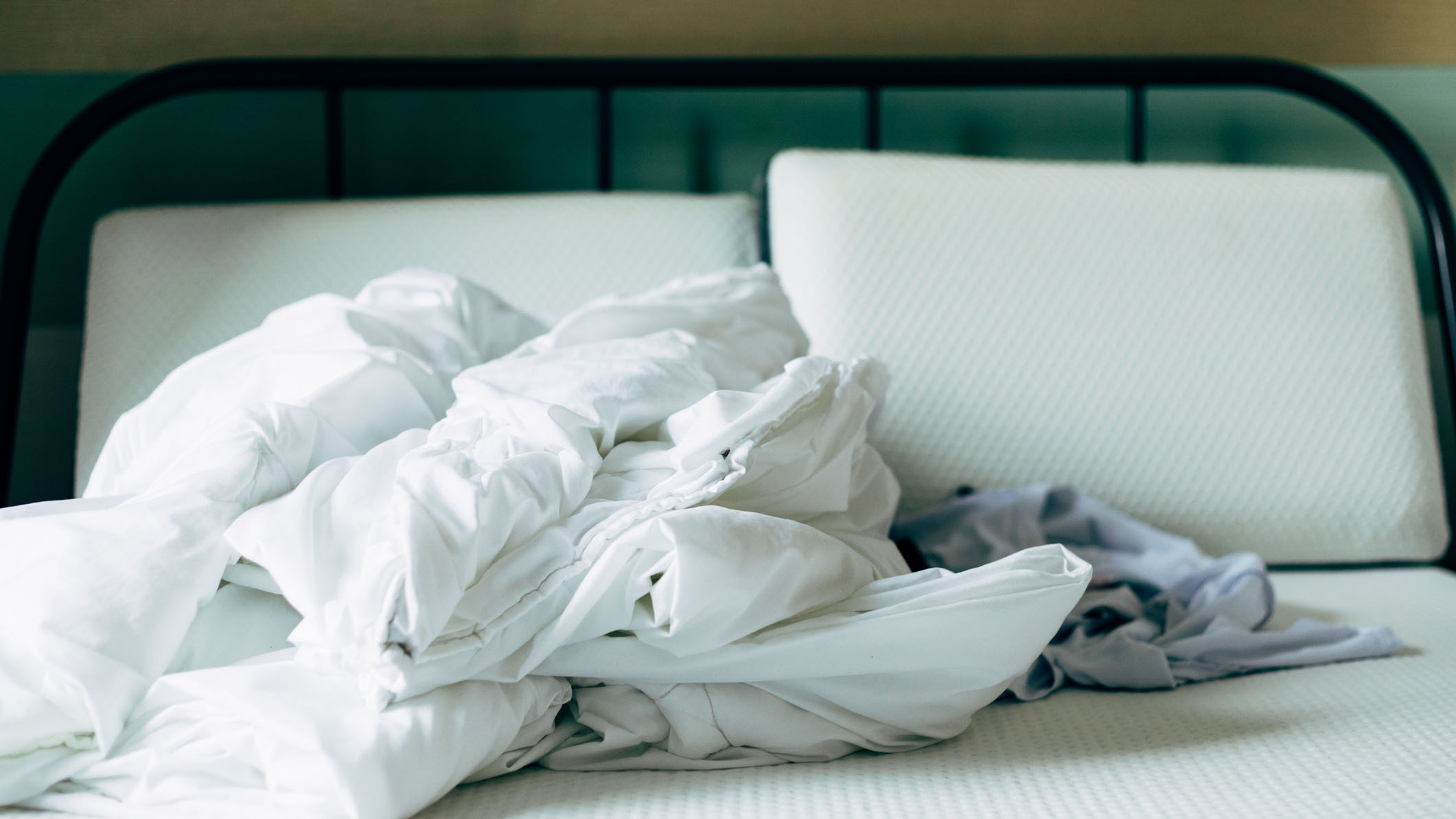This is what happens to your mattress if you don’t change your sheets often
From dust mites to body oil 'soup', here's your reminder to change your sheets — for the sake of your mattress

We get it, laundry is boring, but have you ever wondered what happens to your mattress if you don't change your sheets often? For some people, a weekly bedsheets change is a non-negotiable, while others prefer to go a month or longer without changing and washing their sheets.
If you've invested in the best mattress for your body and sleep needs, regularly cleaning it and your sheets will help your bed last longer – and remain healthier. Otherwise, you risk a build-up of all sorts of nasties that could (over time) impact your sleep quality and potentially trigger allergies.
Here we explain why it's important to regularly change your sheets, how to keep your bed clean between changes, and whether investing in one of the best mattress protector is worth your money or not. Now is a good time to upgrade you sleep space too, thanks to the forthcoming Presidents' Day mattress sales.
1. Your mattress becomes a graveyard of dead skin
We all shed nearly half a teaspoon of dead skin every night when we’re in bed, and the longer your sheets are on the mattress, the more dead skin builds up. While the dead skin sheds directly onto the the sheets, don't think that the sheets will shield your mattress from these flakes. The longer the dead skin is sitting on the sheets, the greater chance they have of penetrating your actual mattress.
2. Dust mites and bacteria colonize
So, what happens if these dead skin flakes do begin to snowball on your sheets and mattress? They become food. Dead skin is heaven for dust mites; just one night’s dead skin shedding is enough to feed over one million dust mites. Dead skin build-up is also a breeding ground for bacteria, which can then spread through your linen and down into your mattress.

3. Your mattress will marinate in body oils
Unless you suffer from a health condition that causes profuse sweating, the majority of people produce around 26 gallons of sweat a year (this may increase during periods of hot weather). Sweat and natural body oils will soon pass through your sheets and down into your mattress.
Those yellow stains you see on your mattress? That's sweat and body oil, though some yellowing is due to natural decay of older mattresses, plus vomit and urine can cause similar staining.
Sign up to get the BEST of Tom's Guide direct to your inbox.
Get instant access to breaking news, the hottest reviews, great deals and helpful tips.
Who should change their sheets more regularly?
While everyone should prioritize changing their sheets regularly (once a week is the recommended amount), some should do it more often than others. For example, people prone to night sweats and hot flashes (such as those who are going through the menopause or have a health condition that causes profuse sweating) should change their sheets more regularly to avoid perspiration build-up.
You should also change your sheets more if you live in a warm climate or if your area is experiencing a spell of hot weather or a heatwave. Likewise, if there's a sickness bug floating around town or you're in the grips of cold and flu season, you can spread contaminants all over the bed.
These contaminants are spread through coughing and sneezing, with these virus particles living up to 72 hours on porous surfaces such as cotton. In fact, a 2020 study showed that the bed sheets of a person infected with Covid-19 (even if asymptomatic) had a coronavirus-positive rate of 50%.
Here's some bad news for those who love to curl up with their cat or dog at night, too: sharing a bed with your pet creates a not-so-pleasant mixture of dead skin, body oils, sweat, and pet dander. So if your four-legged friend is also your co-sleeper, you'll need to remove the fur and wash your sheets more regularly.
How to keep your bed clean between changing the sheets

To keep your mattress clean, vacuum and spot clean with a stain removal solution every six months. Outside of your mattress, make sure your bed frame and rails are cleaned regularly by wiping them down (check the frame's material to see how it can be cleaned first) to remove any dust and dead skin build-up. This a particularly important step if you're sick, as a 2020 study revealed that bed rails was the most contaminated area of Covid-19 patients' bed.
Also, contrary to what you've always been told, making your bed straight after getting up is not a hygienic habit. When answering the most common questions about mattress care, M&S Mattress textiles expert Lydia Lloyd told us that you should always let your mattress breath for 30 minutes before making your bed.
“While it can be tempting to make your bed straight away, it’s recommended to let your mattress and bedding breathe in between use, as this helps to reduce the chance of dust mites,” explains Lloyd. “To let the bed air, throw your duvet back for half an hour each morning so that any moisture or natural build-up of allergens disperse."
Does a mattress protector mean you can change your sheets less often?
While mattress encasements completely cover your mattress (including the bottom), the next best thing is a mattress protector, which shields the top surface and sides. Mattress protectors can help safeguard your mattress against spills, stains, dust mites, dead skin, and even bed bugs, but we still recommend changing your bed once a week to keep your sleep space fresh and hygienic.
Another benefit to changing your sheets regularly is the clean scent (think of a clothes line full of freshly washed cotton sheets billowing on breezy summer's day), which creates a nice, relaxing sleep environment to help you fall asleep faster.

Frances Daniels is a PPA-accredited journalist and Sleep Staff Writer at Tom's Guide with an MA in Magazine Journalism from Cardiff University. Her role includes covering mattress and sleep news and writing sleep product reviews and buyer's guides, including our Best Hybrid Mattress 2025 guide. She is hugely interested in the relationship between good sleep and overall health, interviewing a wide array of mattress and sleep experts to create well-informed articles about important topics such as nutrition, sleep disorders (from sleep apnea to night terrors), lucid dreaming, sleep hygiene, and mattress care. She is also our specialist on mattress toppers — producing mattress topper reviews and taking care of our Best Mattress Toppers 2025 guide — and takes the lead on all content related to fiberglass-free mattresses for a clean, non-toxic sleep. Outside of Tom's Guide, she has written for Ideal Home, Homes & Gardens, and Marie Claire.
